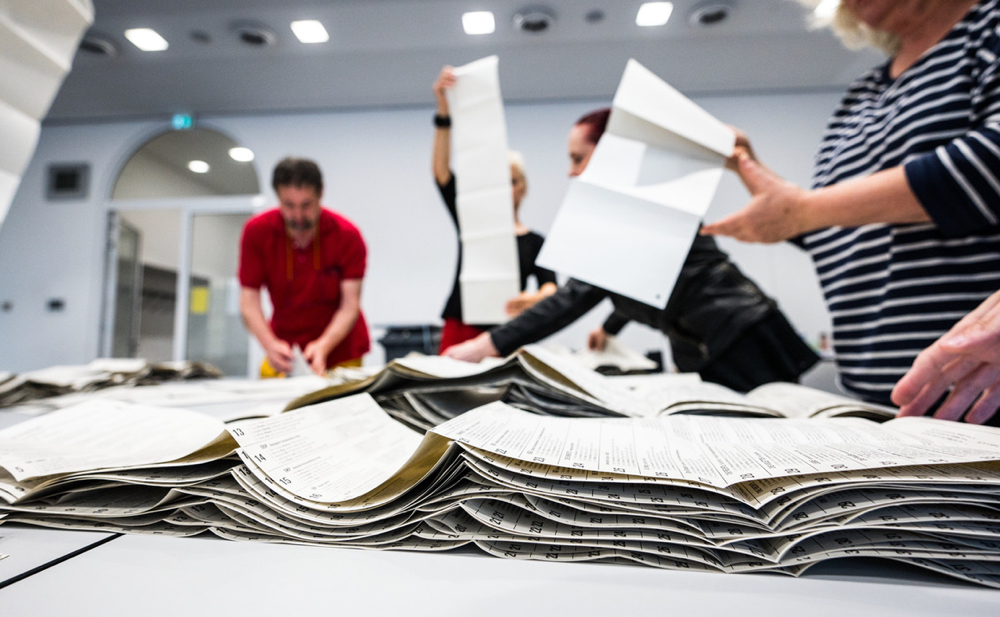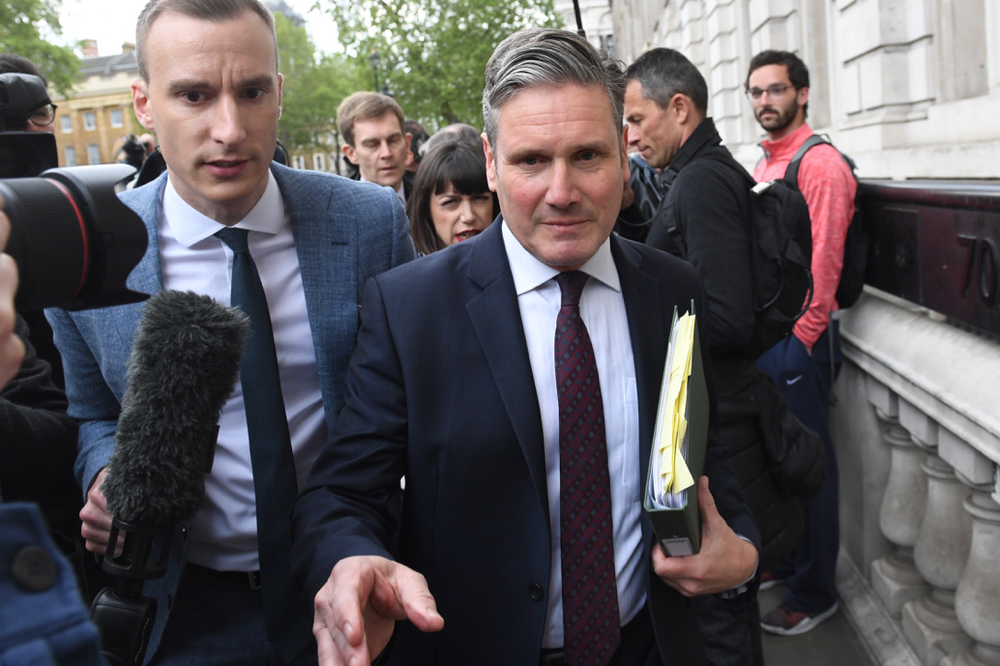Believe it or not, there are still two easy winning moves on the Brexit chess board – one available to each side. Each move, simple and elegant, quickly leads to checkmate and the game is over. One gives the Conservative Party virtually everything it wants; the other solves Labour's many manifest problems over Brexit and brings it to the door of 10 Downing Street. Neither of them qualifies as a unicorn – the description EU negotiators have given to fanciful solutions which do not belong in the real world. But note – there can't be two winners. Victory goes to the one that seizes the initiative first. But maybe they are too locked inside their respective boxes to think outside them.
First, the Tory winning move. A leader is elected to succeed Theresa May, on a promise to renegotiate her withdrawal agreement but without the notorious backstop. That was the part of the deal which has three times led to it being rejected by the House of Commons. The backstop ensures that the whole of the United Kingdom remains within the EU customs union until such time as an alternative method is agreed for keeping open the border between the Republic of Ireland and Northern Ireland. The objection to it has been that without such an alternative, the whole United Kingdom would remain inside the customs union indefinitely – in effect it will not have "left" the EU as the 2016 referendum result required.
So the first part of the winning move is to drop the backstop. The second part is to enshrine in law what the backstop is trying to achieve – an open border between the two parts of Ireland. So in place of the backstop, the withdrawal agreement would have added to it this clause, or something similar: "The Government of the United Kingdom has a legal duty under the Good Friday Agreement to guarantee the free and uninterrupted passage of goods, vehicles and people across the land border between the Republic of Ireland and Northern Ireland, by road or rail; and from the commencement of this withdrawal agreement it shall be unlawful for the Government of the United Kingdom to hinder the free and uninterrupted passage of goods, vehicles and people across that border, or to permit others to do so." This says nothing about what may happen on the other side of the border, of course, but that is not the problem.
The solution looks very simple and it is. Dublin, Belfast, Brussels and London are already in complete agreement with what it is setting out to achieve – an open border between the two parts of Ireland – so no change of policy is required. But there is one significant implication. It would be necessary to have customs and immigration checks at Holyhead, Liverpool and Cairnryan (in effect, Stranraer), operating on the same terms as customs checks for cross-channel ferries at Dover, Newhaven, Plymouth, Harwich, Poole and Portsmouth. Assuming there were no tariffs on goods either way, which is what Mrs May's withdrawal agreement envisaged, this should be straightforward.
The Democratic Unionist Party in Northern Ireland may object, on the grounds that Northern Ireland would remain permanently inside the EU customs union. But there is little the DUP can do to block this proposal, once its bluff has been called. The majority in Northern Ireland, both unionists and nationalists, voted decisively in 2016 to remain in the EU and hence in that same customs union. So the DUP's strange metaphysical belief system – about Ulster and Great Britain remaining in one grand united Protestant embrace – would lack any democratic traction. The EU has already given its blessing to such an arrangement, before Mrs May changed her mind after speaking to the DUP, and opposed it.
It would be honest to admit that very few Westminster politicians spend more than a few seconds a year thinking about Northern Ireland, about which they know very little. The backstop was only a big issue because it involved the whole of the UK, and because Mrs May had done a deal with the DUP to help keep her in office. So this modified withdrawal agreement, without the backstop but with a legal "no hard border" guarantee instead, would stand a very good chance of passing through the House of Commons. It would avoid a referendum and a general election, and garland the new Tory leader with the golden aura of success.
Labour's winning move is actually even simpler. It is to replace its leader, Jeremy Corbyn, with the man who led for Labour on the EU issues, the shadow secretary of state for leaving the EU, Sir Keir Starmer. He is a QC who rose to the top of his profession as a successful criminal and human rights lawyer, and was an effective and well respected Director of Public Prosecutions.
He is relatively new to politics, hence untainted. So far the Tories have not landed a glove on him. He has been a loyal member of the Corbyn shadow cabinet, though not a member of the left-wing cabal that surrounds the present leader. The party leadership team is badly overdue for a retread, and it has been utterly discredited by the results both of the recent local government election and the European Parliamentary election. Under Mr Corbyn Labour is going nowhere, and they surely know it.
Unless the Tories find a way out of their present impasse such as that described above, the country is heading fairly inexorably to a general election. Under Sir Keir Starmer, Labour would win handsomely, probably with an overall majority. He is an unapologetic Remainer and advocates a second referendum to achieve the reversal of the 2016 result. He seems comfortable with the policy platform set out by Labour for the 2017 election, which is more left-wing than anything Tony Blair or Gordon Brown would ever have come up with, and that would satisfy most Labour MPs, party members and voters. Given the alternatives, it might grudgingly satisfy many of Labour's pro-Brexit voters, as the best deal they are ever going to be offered.
What would stop a Starmer bandwagon? Probably only a successful conclusion to Brexit by which Britain leaves with an acceptable deal. So both sides have a mate-in-three available to them. Or will the game of Brexit just go on indefinitely as an increasingly tedious stalemate, for ever?



 Loading ...
Loading ...
What do you think?
You can post as a subscriber user ...
User comments (0)